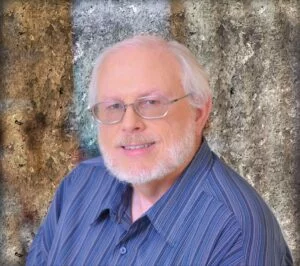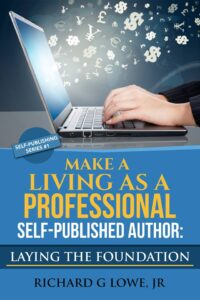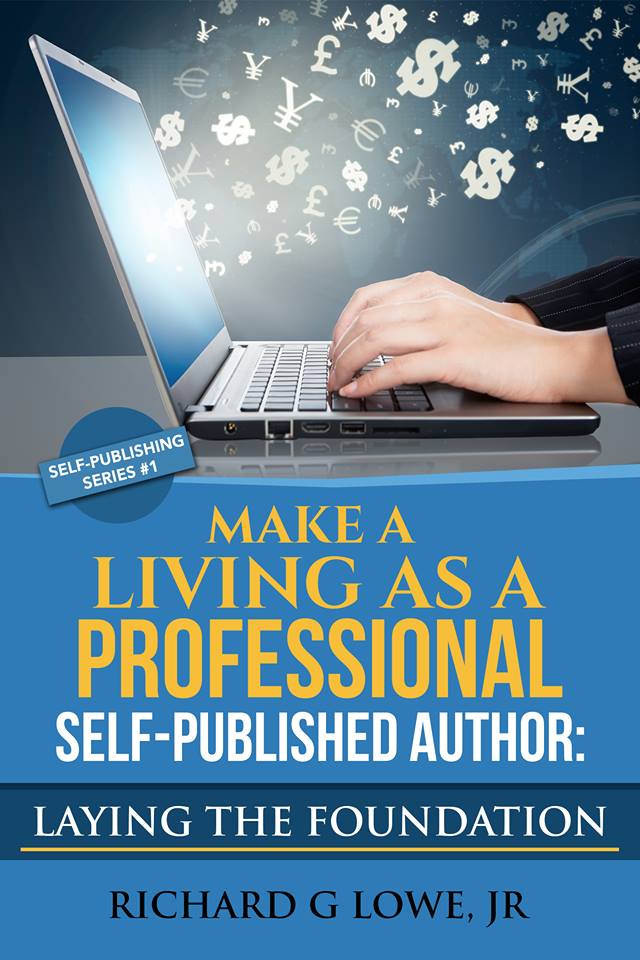
American indie author Richard G Lowe Jr makes the case for treating your writing as your career
Drawing on his own experience of making a living from his writing, Richard G Lowe Jr, with over 60 self-published books to his name, defines what it means to turn your self-publishing projects into a viable writing career – to live the dream of earning your living as a professional self-published author. Here he provides a useful checklist of the essential skills and knowledge gained from his own journey from hobbyist to professional. Do you have what it takes?
Definition of a Writing Career
Writing is one of the most fulfilling careers that I can possibly imagine.
By a writing career, I mean treating your writing as a business designed to bring in an income.

Drawing on his experience of self-publishing over 60 books, Richard Lowe is writing in a three-part series of books on how to earn a living from your writing. The first, now published, addresses the key points in the list of bullet points below.
Building a writing career is a long-term goal. A career is not a short-term thing. You can’t go to a weekend retreat or a two-day seminar or listen to a lecture and suddenly be able to quit your day job and bring enough income to pay the bills, send the kids to college, and go on a great vacation. That’s just not going to happen.
Instead, if you treat writing as any other type of career, and lay the proper foundation, you can build yourself a foundation upon which you can make a good living which is even better and more fulfilling than working a normal 9 to 5 job.
You can do it. You can become a professional self-published author.
How do I know this? Because I’ve done it myself, and I’ve got a good idea of what works and what doesn’t.
My Journey from Amateur to Professional
Writing is in my blood – it is my passion and makes my spirit sing. I love creating and publishing a book more than just about anything else that exists in my life. There’s a certain special sense of accomplishment in receiving a book that I wrote in the mail, tearing open the box, unwrapping my book and thumbing through the pages. It’s a feeling like none other.
I can’t think of a time in my life when I haven’t been writing in one form or another.
When I was a child, I wrote long papers explaining something that I learned or giving the results of some investigation. As I grew older, I found that I enjoyed writing term papers, answering essay questions, and doing assignments that required more subjective answers.
I think my friends thought that was a bit strange, but nonetheless, I continued writing.
I was vocal, pointing out to teachers that multiple-choice questions don’t really test the knowledge of anyone. All they do is make the tests easier to grade and categorize.
Most children dream of being an astronaut or fireman or something of that nature – something heroic and dangerous.
Me? Like many youngsters, I wanted to hunt dinosaurs. You can imagine my disappointment when I found out the dinosaurs had been instinct for millions of years. However, I could still read about them, and learn the fascinating habits of the strange creatures.
But what does that have to do with writing?
As I read through books about dinosaurs and other subjects, I realized that these people – writers – had a talent for tackling a difficult subject and making a comprehensible, even for a young teenager like me. Isaac Asimov, for instance, could take the incomprehensible subject of subatomic particles and nuclear physics and boil it down into easy to read and understand chunks.
I wanted to be able to understand the subjects and help others understand them as well through writing.
Life got in the way, as it often does, and priorities shifted. I became the vice president of a couple of companies, and the director of technical services at Trader Joe’s. For 33 years I worked for other people doing what I was told. For 12 of those years, I was married and raising a family until she passed away.
In 2013, I decided it was time to become a professional writer – which meant building a writing career, rather than treating it as a hobby.
Key Steps in Building an Author Career
So what did I do to build a sustainable career with your own books and writing abilities? I learned:
- how to write and understand the concepts of grammar, spelling and style.
- where to get ideas for my writing.
- how to build my brand, which is the way people think about an author and their works.
- how to create an effective author platform to reach my audience (blog, LinkedIn profile, Facebook page, Twitter, videos, etc)
- the legal niceties: what I could write about and what I should avoid
- how to organize a book’s content, including technical details such as the copyright page and the hidden metadata
- how to publish my books on the most appropriate platforms and in the right formats
- how to network with other people – and with whom (readers and writers)
- how to keep money coming in day after day and month after month
And finally, perhaps most important, I learned to think of my writing career as a business not as a hobby.
Businesses are designed to earn money, hobbies are designed for pleasure.
That’s not to say that you can’t enjoy or get pleasure from your business, but that’s not the primary purpose. But make sure you enjoy yourself along the way. Have fun and enjoy the ride.
OVER TO YOU Has there been a defining moment or event that tipped you over from hobbyist to professional author? We'd love to hear about it!
#Indieauthors - do you have what it takes to turn professional? @RichardLoweJr list the essential learning points to earn your living as a #writer, drawing on his own journey from hobbyist to pro. Share on XOTHER POSTS ABOUT TREATING YOUR WRITING AS A BUSINESS
From the ALLi Author Archive
https://selfpublishingadvice.org/author-earnings-through-author-business/





I recently self-published 2 books at the same time online…it was journey…but I love it all the way…now I’m planning on starting another one…Thank you
At +75 , I already published two books, planning to write more.
Good that I read about You
Regards,
I am very impressed with what you say. I am a physically disabled Metis Canadian. I have a 4 book set “BLUE HIGHWAY SUNSHINE ROUTE: (seasons) Daily Reader for those with Fibromyalgia and Chronic Fatigue as well as “The Indigenous Women’s Journal a lined 200 of. notebook/journal. I have 3-4 I her books I want to write & sell from Amazon & my website when it goes live (I’m doing actions for successful online business under Kathryn Calhoun Coaching) Sadly I have no credit card, so have not been able to make brain my books in my own hands; an important time for any Author. Namaste’
I’ve just published my first two books as a self-publisher and loved the process. My journey is a little like yours and I just decided, yes! It’s time to unleash what’s been sitting around in my mind for years.
However, you just left your audience with a list and no details. I just read the contents of what should of been an amazing article or guide for writers looking for some great tips. Can you expand on the list you gave and compose a few examples.
Thanks!
Nice article. Keep it up.